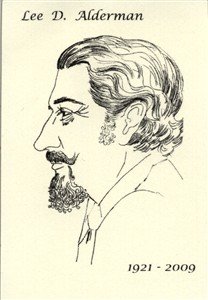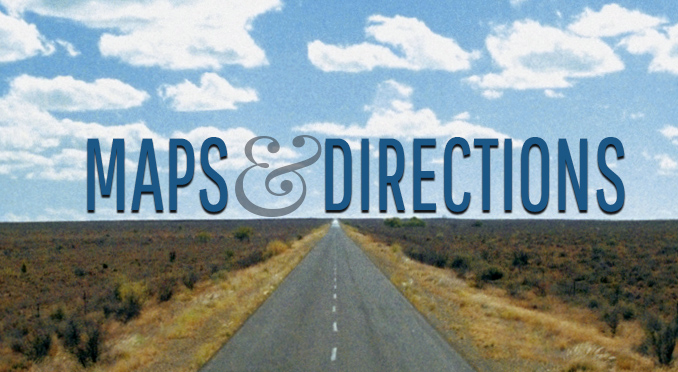
Share Your Memory of
Lee
Obituary of Lee D. Alderman
Lee D. Alderman
Brighton: September 13, 2009. Predeceased by his brothers, Mortimer and Irving Alderman. Survived by his beloved wife of 43 years, Judith Kusler Alderman; brother-in-law, Alan Kusler; sister-in-law, Betty Alderman; nephews, Marty (Roberta) and Ethan; and many cherished friends. Funeral Services will be held on Tuesday, September 15, 2009 at 12 Noon in the Rabbi Abraham Solomon Chapel of Temple Beth El (139 Winton Rd. S.) Click here for directions to Beth El. Interment Mt. Hope Cemetery. Following the funeral, a period of mourning will be observed at 20 Coral Way, Tuesday, 7-9 PM & Wednesday, 2-4 & 7-9 PM. Click here for directions to the house of mourning. Donations may be made to The Jewish Home Auxiliary
2021 Winton Road South
Rochester, New York 14618 or Temple Beth El
139 Winton Road South
Rochester, New York 14610
Link to Beth El or a charity of choice.
Eulogy for Lee D. Alderman
presented by his nephew, Ethan D. Alderman
Temple Beth El, Rochester, NY
Elul 26, 5769
September 15, 2009
This is going to take a while; please forgive me. There is much to say of my cherished uncle.
My aunt asked me to begin with a joke, but as hard as I tried, I couldn't think of one of his favorites that is clean enough to utter within these walls. So let me begin by quoting Voltaire who said “What most persons consider as virtue, after the age of 40 is simply a loss of energy.” If anyone in this chapel has never heard Lee tell a joke, please raise your hand.
I didn't think so.
Did any of you present today ever feel demeaned, disrespected, or belittled by Lee Alderman? No?
I'm not surprised
Have any of you been in a conversation with Lee where you felt he wasn't paying attention? If so, the batteries in his hearing aides surely must have been dead. As each of you knew my uncle, you knew of his exceptional creativity. It came naturally to him. It is who he was. From the time in his early teens when his mother converted her small dress shop into a liqueur store, he designed the store and window displays and reveled in the opportunity to catch the eye and engage the mind. He only ended that pursuit as of early Sunday morning. Lee didn't just engage in creativity, he was fascinated by the idea of creativity. Where does it come from? How is it manifested in each of us. How can it be used most effectively; most responsibly; to promote good? How did those who are limited in their thinking miss the joy and freedom it provides? Voltaire expressed it as: “Think for yourselves and let others enjoy the privilege to do so, too.” He looked for the deeper meaning, the whys and hows of everything. He had an endless curiosity about the components of life. He was a person of depth. My uncle believed in the power of communication and was one of its most skilled practitioners I've ever encountered. It was more than a tool of his trade: a career in visual, verbal, and written communication. It was a mission to find the most effective way to promote an idea, service, or product. He understood the power of effective communication and believed in the responsibility to never abuse it. It disturbed him to see advertising that accomplished its goal through manipulation instead of inspiration. That's the easy way out, a concept foreign to him. This was an example of his uncompromising integrity. He didn't struggle with this, as some do. It was clear. When in doubt, don't do it. Voltaire said “Anyone who has the power to make you believe absurdities has the power to make you commit injustices.” He couldn't abide such abuse of power in himself, the only one he ultimately had control over.
VOLTAIRE AGAIN!!! You may be, or should be thinking! why am I so obsessed with Voltaire??? Enough with Voltaire! Uh oh... I have to pause for a slightly adjusted joke. Moishe and Freida are on their way to a party at the home of some fancy people. Moishe says to Freida “tunite, plis don say noting stupit. If you cand be shmot, don say notin.” Freida says “Vot, you tink I'm stupit??? I'll show you I'm not stupit.” In the party the conversation flows from art to music to literature. Someone turns to Freida and asks if she knows Voltaire. “Know im!” she says. “Last veek I set nix to'm on de #5 bus to di beach.” The room goes silent. Everyone is a bit embarrassed for her, but slowly the conversation resumes. Back in the car on the way home Moishe finally breaks the silence. “you chad ta do it. You chad to opn you big, fat frescher n show evribody how stupit yar.” “Vot” she says. “Vot I did?” Moishe says “Evribody knows de nomba five bus don't go to de beach!!!”
I keep mentioning Voltaire because sometime in the past year Lee and I were standing in his office discussing life when he quoted Voltaire. I desperately wish I remembered the actual quote, though the ones I've chosen do represent the way Lee thought. I paused after he said it and I told him how proud I was to have an Uncle who quoted Voltaire. He quickly said “don't be too impressed; it's the only Voltaire I know.” It was important to him to dispel any notion I might have that he was exceptional. He didn't think of himself as a great thinker, a learned man, or in any way superior to any other. He was just who he was, who had happened to pick up a thing or two along the way. He wasn't interested in impressing. Just in contributing. It's likely that few of you were aware that Lee had two short stories published by The New Yorker in the fifties; quite an accomplishment. He didn't brag. Humor was an essential tool in his arsenal. I don't believe he ever arrived to a social event, business meeting, committee meeting, doctor appointment, haircut appointment, or any interaction with another human being without a joke ready. He didn't do this to show how clever, witty, or funny he was, though he was all of those. He did it to lighten the mood; to share some joy; to make you or the group you were in feel better. To promote the Jewish concept of Tikkum Olam, “to heal the world”, one giggle or guffaw at a time. My Uncle was ahead of Women's Liberation. He didn't believe in traditional gender roles. Well, Lee used to say the only thing domestic about Judy is that she was born in America. He shared in the housework and he loved to cook, to explore combinations, the flavors, textures, colors, aromas. But again, there was deeper meaning. I believe Rabbi Field will share with you Lee's interest in the history and anthropology of food in our Jewish culture. His pleasure was to provide his beloved wife and soul-mate with a special meal to enjoy, and share in joy together. To share the details of each of their challenging yet fulfilling workdays. To provide their families and friends the pleasure of fine food, a warm and joyful home, and the sense of community and togetherness that always resulted when they frequently entertained.
Another source of joy for him was in the arts: all forms. He was especially touched by theater. I couldn't possibly represent his life and interests without mentioning his all time favorite, “Man of LaMancha”, something to which anyone whose been to his and Judy's home might have caught a clue from the dozen sculptures, drawings, paintings, and tile depicting Don Quixote and Sancho Panza. He loved the music, the stage setting, the costumes, the energy. It filled him with joy, but more than that, he loved the message. If I didn't have an Alderman voice I'd sing it, but there's already too much pain in this room today – I'll spare you and recite a central song I'm sure you all know. To dream the impossible dream
To fight the unbeatable foe
To bear with unbearable sorrow
To run where the brave dare not go
To right the unrightable wrong
To love pure and chaste from afar
To try when your arms are too weary
To reach the unreachable star
This is my quest
To follow that star
No matter how hopeless
No matter how far
To fight for the right
Without question or pause
To be willing to march into Hell
For a heavenly cause
And I know if I'll only be true
To this glorious quest
That my heart will lie peaceful and calm
When I'm laid to my rest
And the world will be better for this
That one man, scorned and covered with scars
Still strove with his last ounce of courage
To reach the unreachable star
I truly believe this song describes the way Lee D. Alderman lived his life. To the fullest, with each day as an opportunity to try harder, reach farther, touch and help more. A life well lived.
A friend I made when he came to work in my department at Kodak, who had become friends with Lee several years earlier while helping him with his frequent computer problems and confusions, called me last night and said “Lee was the finest man I've ever known, including my father, and that's saying a lot.” Leon's father was a great man. I'm sure many have had that reaction to Lee. He was truly a Mensch.
My Uncle and I were extremely close throughout my life and spoke to each other from the heart. One day within the past year we were standing in his office discussing life when he acknowledged that he was unlikely to accomplish the standard Israeli birthday card wish “עד מאה ועשרים" – “may you live to one hundred and twenty” which brought us to discuss this day, whenever it may come. He was clear and specific that he wanted me to deliver the eulogy, and to conclude with the joke he told when delivering the eulogy at my Uncle Irv's funeral:
An old man knows he's soon to die. He speaks to God: “God, I've tried to live a righteous life, to be a good man, to be honest in business, to be a good husband and father. But I didn't make a lot of money. If I'm soon to be gone from this earth, I'm asking you, please let me win the lottery. My wife, she's been loyal and hard working, loving and supportive (much like my Aunt, Judy!) With the little we had she made a perfect home. I couldn't give her the nice things her friends had. It was hard, but she didn't complain. When I'm gone, I'd like her to have it easier, I'd like her to have a little extra. Could I please win the lottery? And my son, he took some wrong turns, with the drugs and the gambling. I tried to show him a better way, and he's been turning himself around. He's back in school and is going to make something of himself. I'd like to be able to help him make a fresh start. Could you please let me win the lottery? My daughter, I know she made some bad choices – all those boys. And she ended up with the two children and no husband. But she's a good mother and is finally dating such a nice boy. I'd like to help her make a nice life for her family. Please, I'm asking you, could you help me win the lottery???” He waits, and waits, and finally calls out to God: “Please God, won't you answer me, won't you answer my prayer?” Finally, he hears the voice of God: “Meet me halfway: buy a ticket!”
Lee Alderman didn't meet God halfway. He took a few extra steps towards God, so that God would have a little more time to help others who needed it more.
Home
Brighton, New York
Birthplace
Rochester, New York



